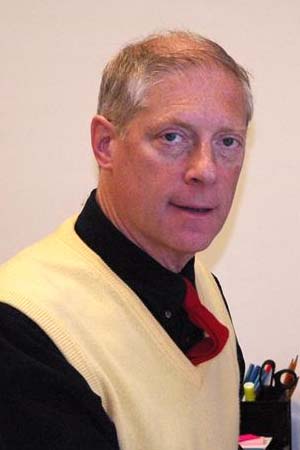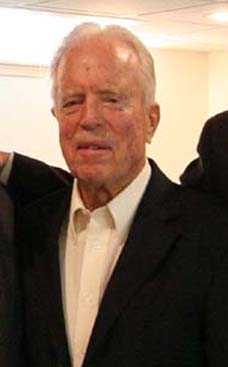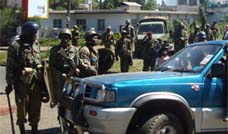
In 1972, Orloff served with the Peace Corps in the Paktia Province of Afghanistan, an area he equates topographically with Bend, Ore. He said guns and poor living conditions were everywhere during his visit--a time that he said marked the early formation of the Taliban. "I had daily contact with Pashtun people that are now in their 30s and 40s, and I wouldn't be surprised if they're current Taliban," he said. "I had a revelation while working with the people who, despite the political atmosphere and rough conditions, were very proud to be a part of this particular culture. I realized there is a lot of will in people to preserve what is their own, and I wanted to bring that home."
Afghanistan RPCV Chet Orloff was director of the Oregon Historical Society and editor of the largest legal publication on the West Coast
Making history
Chet Orloff makes a passion for history part of everyday work
By: Robert Seitzinger
Issue date: 1/16/08 Section: News
He is often heralded as a distinguished historian, but professor Chet Orloff spends less time in class thinking about the past and more time on shaping the future.
Orloff, 58, has served as a Peace Corps teacher in Afghanistan, director of the Oregon Historical Society and editor of the largest legal publication on the West Coast. And since 2001 he has worked in Portland State's Urban Studies and Planning department. Orloff has many titles in the community, including positions on multiple boards, but he said his teaching work is what he enjoys the most.
He strives to teach students what he calls "applied history," the idea that students can affect how future generations will perceive our actions and culture of this era.
"I don't know if it's too lofty a goal, but I believe a professor is responsible for how historically aware his students are, and I want my students to be very acutely aware of their impact on the future," Orloff said.
Orloff is currently teaching a Capstone course in which students assist with the vision for his Museum of the City project, a Portland-themed museum that would focus on the city's cultural history. According to its website, the museum may be open by 2030. Orloff is also working to create a PSU museum that preserves Portland State culture.
"Every great university has a museum, and I want to bring one to PSU," Orloff said. "It's important for students to take the lessons history offers, to give them perspective on such an interesting city as Portland, and to motivate students to be aware of the history they're making today."
History of the historian
In 1972, Orloff served with the Peace Corps in the Paktia Province of Afghanistan, an area he equates topographically with Bend, Ore. He said guns and poor living conditions were everywhere during his visit--a time that he said marked the early formation of the Taliban.
"I had daily contact with Pashtun people that are now in their 30s and 40s, and I wouldn't be surprised if they're current Taliban," he said. "I had a revelation while working with the people who, despite the political atmosphere and rough conditions, were very proud to be a part of this particular culture. I realized there is a lot of will in people to preserve what is their own, and I wanted to bring that home."
Soon after he returned home to Oregon in 1975, he became assistant director for development at the Oregon Historical Society. He held the position for 11 years, working long hours every day of the week, he said.
"I was so entrenched in legal and cultural history that my colleagues accused me of trying to catch up with history," Orloff joked.
In 1985, he helped found the Ninth Judicial Circuit Historical Society, which preserves legal records from nine states in the western United States. The society also publishes the second-largest legal journal in the country, called Western Legal History, which Orloff edited for seven years.
He returned to the OHS in 1991 to serve as executive director until 2001, when he was asked to teach at PSU. Orloff successfully initiated a master's program for history, in addition to founding several classes, including "Portland: Past and Present" and "Understanding Communities."
Orloff plans on teaching at Portland State for a while, continuing to inform his students about the value of history and how their actions today will change tomorrow.
"I take pride in my work, and to make young minds aware of their cultural and historical impact is the best part of being a professor," he said.









